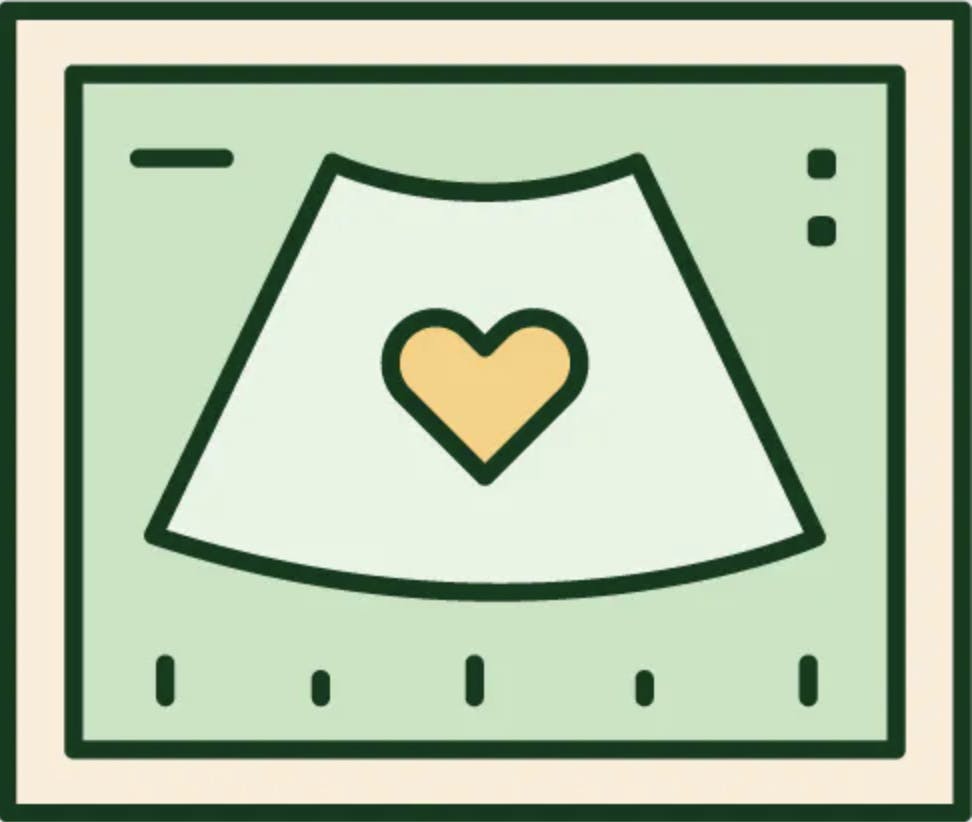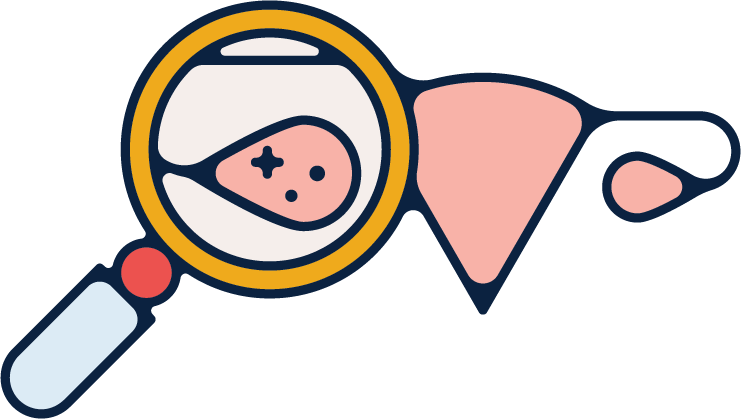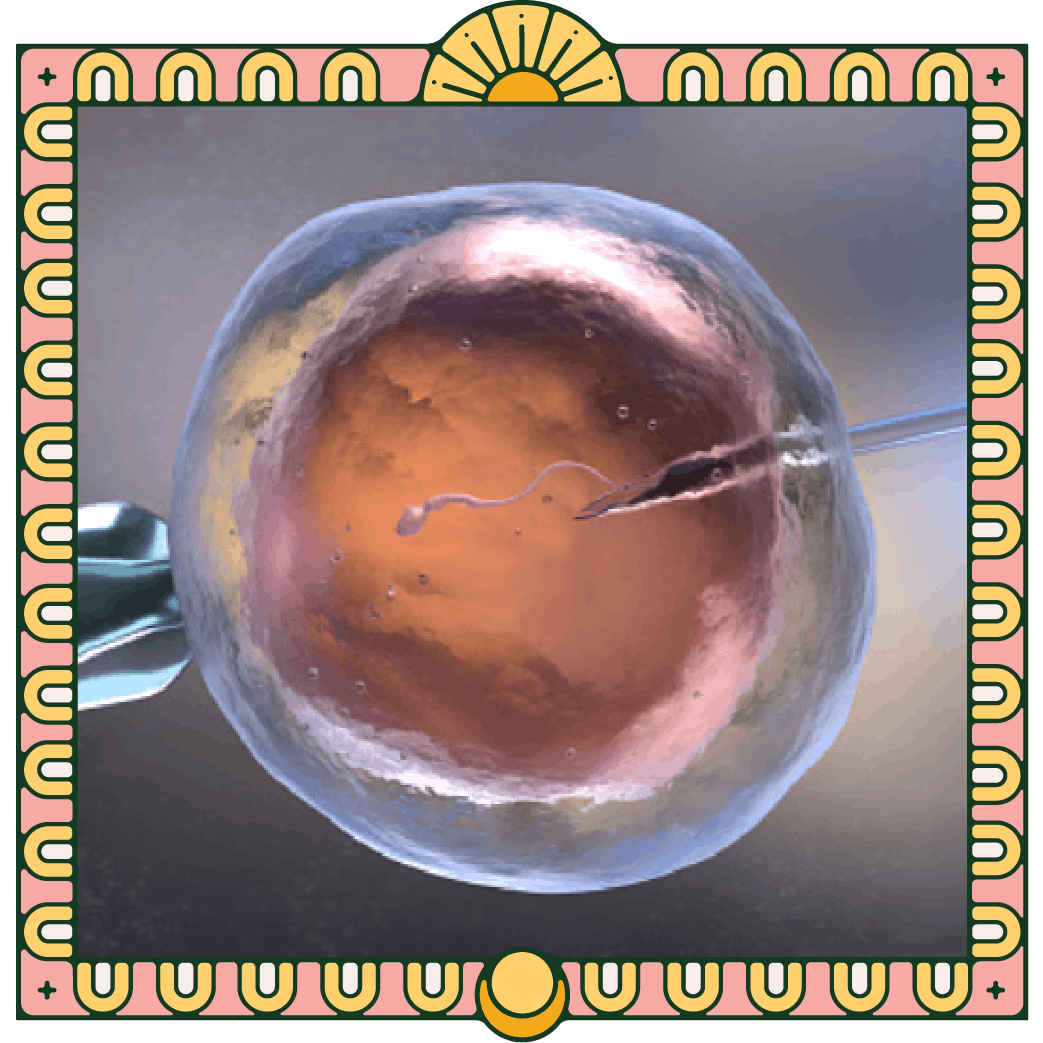Table of contents
1. What’s the difference between a donor and a co-parent?
2. The pandemic forced fertility matters into the spotlight
3. Numbers of women choosing to be solo mothers are soaring
4. My journey into motherhood
Illustrated by Erin Rommel & Sabrina Bezerra
It started out as a joke. A plan B conceived late at night, with other single girl friends in their 30s. “Fuck it! If we don’t meet someone by the time we are 40 we’ll have babies with our gay friends.” Infinitely more charming, sophisticated and suave than the straight men we knew, it didn’t seem like a bad bet. But as many of my single girlfriends crumbled to convention and I went to wedding after wedding alone, I accepted plan B might be my only way to have a child.
It’s not as simple as saying that I didn’t find the right person. It’s more that I stopped believing in convention. I went down some many highways and byways in my search for that one right person that I discovered a kaleidoscope of sexuality and identity, discovering so many different ways to be, that I just don’t prescribe to normal any more. Everything we understand about the world is a construct, where gender is binary and one sex is better than the other. But if you let go of the fairytale idea of Prince Charming coming to rescue you – well, it’s the most empowering thing I ever did.

That’s not to say I don’t want children. I did. I do. In October 2019 – Before Covid – I went trekking in the Himalaya, where I set myself the intention to think about it seriously. How much did I want a child? Enough to do it on my own? Much is written about the meditative power of walking, and I thought about it every day. Me and some friends nicknamed the baby “After Everest” and laughed, but for the first time it began to feel like it could be real.
What’s the difference between a donor and a co-parent?
Would I do it with a donor or ask a friend? What would it be like having one of my gay friends as a father? Did I really want a co-parent, or just someone that the child would know as its father and would play a role in our lives even if not as a full parent. Each scenario had pros and cons. The answer didn’t come on the way up – high on lack of oxygen and stunning vistas and not a care or worry in the world – but on the slow and arduous descent. Yes, I decided, I wanted a child. Yes, I was willing to change my life for one. Yes, I was prepared to do it alone, if I had to.
By chance there was someone in my group who’d also made the decision to have a child outside of convention. Becky Thompson and her partner have two children, with a close male friend as the donor: “It was important to me to be able to tell the child who it’s father was.” Her partner initially preferred the idea of an unknown donor. “We’d agreed that I would carry the child, so Jane would never be biologically related,” says Becky. “I think a known donor presented a kind of threat to her as a mother.”
“
Yes, I decided, I wanted a child. Yes, I was prepared to do it alone, if I had to.
As I’m discovering, there are many legal complications around using known donors. Current UK law states that “If the birth mother is married or in a civil partnership at the time of conception, then her spouse (rather than the sperm donor) will be your child’s legal father (if a man) or second legal parent (if a woman).” But when Becky’s children were born things were different and her partner had to legally adopt the children.
They attended a course to help them navigate this, and other issues. Here they met a whole spectrum of people, all doing things in different ways. “It put all my fears at ease. One thing I’d kept asking myself was should I even have children in a same sex relationship? But the course organiser reassured us. Children have three basic needs: food, shelter and love. You can give a child all of these things and the fact you are here planning for their futures before they are even conceived – that’s a sounder basis than most heterosexual couples.”
The pandemic forced fertility matters into the spotlight
I came home empowered by my decision, and safe in the knowledge that there were other people out there living beyond the normal. Then Covid came along, and changed everything. Along with everything else, fertility clinics were closed, so I made myself a profile on a co-parenting website, where you can look for anything from a sperm donor to a platonic partner with whom to raise a child; and joined a Facebook group for solo mums. But out of work and financially insecure, as well as isolated at home on my own, I’d begun to question whether I could really do it alone.
“
The very first thing I tell people is to decouple wanting a baby with having a relationship
I wasn’t the only person for whom the pandemic forced fertility matters into the spotlight. “I felt as if all my options had been taken away,” says a friend. “It seems crazy to think about this now, but rules during Covid meant that it was illegal to have sex with someone who you didn’t live with, and impossible to date anyone.” The Terrance Higgins trust recommended that: ”Your best sexual partner during the Covid-19 pandemic is yourself” adding that masturbation, sex toys or having phone or online sex are the safest options. She continues, “I felt like my last two fertile years were taken from me. I don’t have anyone I think I could co-parent with, so it left me with no option but to look for a sperm donor through a clinic.”
Last year the number of people contacting fertility clinics soared. Care Fertility, a leading fertility group with clinics around the country, saw a 50 per cent increase in enquiries about egg freezing in November 2020 compared to 12 months earlier. Mel Johnson, a solo motherhood coach and founder of The Stork and I, a support network for single women who are keen to ensure they don’t miss out on parenthood, noticed a huge increase in the number of women turning to her for support.
Numbers of women choosing to be solo mothers are soaring
“Four or five years ago when I embarked on my solo motherhood journey I didn’t know anyone else going through it. Now I’ve coached 100s of women and every month more women contact me than the month before. This number leapt up during Covid,” she says. “Women reevaluated their lives and realised that family was important and life is too short to miss out on things they wanted. And then of course Covid took away women’s opportunity to meet and conceive. The very first thing I tell people is to decouple wanting a baby with having a relationship. You can have a relationship any time you want, but you have to accept that if you want a child, there’s a time limit on that.”

We are conditioned to believe what’s normal in society. Every aspect of society from every book, every film, all advertising sells us the idea that being in a couple is better than being single, and that’s underpinned by the reality that it’s easier to get a mortgage if you’re in a couple, and couples are entitled to tax credits. “The practical aspects of being a solo mother are challenging – if there’s just one of you, managing the house, a career and childcare is challenging,” says Mel. “But you can set your life up in a way that means it can work. And there are also many benefits. All the decisions are mine – I chose the name, how to parent, and we choose exactly how to spend our time. The other great thing is that I don’t have to worry about another relationship. I can focus fully on the relationship with my child.”
My journey into motherhood
It’s exactly a year since I plucked up the courage to ask a friend if he wanted to be the father of my child. And guess what? He said yes, and we’ll start IVF on my next cycle. A cacophony of syringes, hospital gowns and fertility-boosting but mood-altering medication isn’t how I imagined bringing a child into the world. Despite our age – I’m just turned 40 – our test results were just about good enough that there were other options available to us, but we chose IVF as it means that if we’re lucky and make more than one good embryo, we have the option of trying for a second child when I’m older less likely to produce good eggs.
When I asked the question, I didn’t know whether he’d want to be a co-parent or just a donor or something in between. But he wants to be a dad, and he’ll be emotionally, practically and financially involved. He will be named on the birth certificate as father, which gives him parental responsibility for the child. There are of course other complications to work through, and we’ve come across a few sticking points, like housing, but we’ve known each other for 20 years and so have a strong basis of friendship to draw on, and our vision for the future is reassuringly the same. We’re creating a very grown-up co-parenting document to outline the important things like child care, child support and education.
We both know it’s likely to change, but for now it’s a manifesto for how we want to live. It puts the child at the centre of everything. As we’ve been through the questions we’ve out-loud wondered why heterosexual couples don’t have to do the same. It’s a solid basis for the future and I’m thrilled we get the opportunity to make a new kind of family, underpinned by values of tolerance, acceptance and love.






